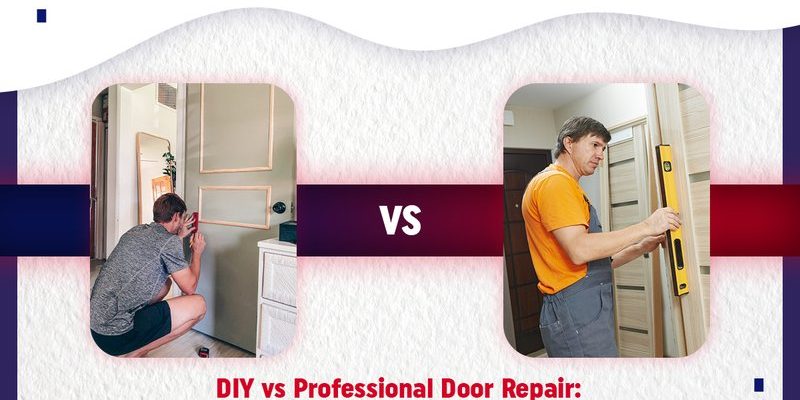
Now, door hardware isn’t just about handles and locks; it can also include hinges, latches, and electronic components. Each piece plays a part in keeping your home secure and functional. In an ideal world, you’d know the ins and outs of door repairs, but the reality is that not everyone has the time or expertise. So, let’s dive into the factors that can help you determine whether to grab your toolbox or pick up the phone.
Understanding Common Door Hardware Issues
Before you make a decision, it’s essential to identify what problem you’re facing. Common issues include malfunctioning door locks, squeaky hinges, and misaligned doors. Each of these can stem from different causes:
- Malfunctioning locks: These might be due to outdated hardware, rust, or even broken parts.
- Squeaky hinges: Often caused by a lack of lubrication, which can be an easy fix!
- Misaligned doors: This could happen if the door frame has shifted over time, making it hard to close properly.
When assessing your situation, ask yourself questions like, “Is this a simple fix, or does it seem more complex?” Here’s the thing: some problems are straightforward enough for a DIY project, while others may need a professional’s touch.
DIY Repairs: When It’s a Go
Tackling repairs can be a satisfying challenge, especially if you enjoy working with your hands. There are several door hardware issues that you can often handle on your own:
- Replacing door handles and knobs: This usually involves unscrewing a few screws and attaching a new handle—easy peasy!
- Lubricating hinges: A quick spray of WD-40 can silence those annoying squeaks.
- Realigning doors: Sometimes, a simple adjustment of the hinges can solve the misalignment problem.
If you choose to go the DIY route, here’s a tip: always have the right tools on hand. A screwdriver set, a level, and lubricant can go a long way. Plus, you might find some helpful tutorials online, turning you into a bit of a door hardware whiz!
When to Call in the Pros
While some repairs may seem manageable, others can quickly turn into a headache. If you notice issues like the following, it might be time to call a professional:
- Complex locking mechanisms: If your door lock is jammed or won’t turn, it may require specialized tools that only a professional locksmith has.
- REplacing electronic door hardware: When dealing with smart locks or keyless entry systems, it’s often best left to a tech-savvy expert.
- Severe structural issues: If the door frame is warped or the entire door isn’t hanging correctly, a professional may need to assess and repair the damage.
Calling a professional may feel like a setback at first, but it can save you time and stress—especially if the repair is above your skill level.
Evaluating Your Skills
Now, before you decide to fix things yourself, consider your skills. Are you someone who enjoys DIY projects, or do you usually get overwhelmed with tools? Here’s a checklist to help you evaluate:
- Experience level: Have you tackled home repairs before?
- Tools: Do you have the necessary tools for the job?
- Time: Can you afford to spend an afternoon figuring this out, or do you need it fixed ASAP?
Taking a moment to really think about your skills—and the time you have—can help you avoid a possible disaster later on.
Cost Considerations
When weighing DIY versus professional help, cost can also play a significant role. DIY repairs can often be cheaper, mainly if you’re using supplies you already have. However, consider these factors:
- Parts and tools: Are you buying new tools or parts that might cost more than a professional’s labor?
- Time is money: If a simple repair turns into a day-long project, will that loss of time outweigh a quick pro visit?
- Future repairs: Messing up a repair might lead to even more costly issues down the line.
It’s wise to budget for repairs and think about not just the immediate costs but the potential long-term effects as well.
The Importance of Safety
When working with door hardware, safety should always be your number one priority. If you feel uncertain about a repair, it’s better to err on the side of caution. Some safety tips include:
- Wear protective gear: Safety glasses and gloves can help prevent injuries.
- Turn off power: If your door hardware is electronic, make sure to disconnect it before any work.
- Ask for help: Having someone around can provide assistance and safety in case an issue arises.
Your safety is essential, and nothing replaces being cautious.
Navigating whether to repair your door hardware yourself or hire a professional can be tricky. It boils down to understanding the issues at hand, evaluating your skills, and weighing costs. Sometimes picking up a screwdriver and getting to work can bring a great sense of accomplishment, while other times, putting down the tools and calling in the pros is the best move.
Ultimately, you want your door to function well and safely. Whatever path you choose, make sure it aligns with your comfort level and needs. After all, a secure door is just as important as a well-loved home. So, whether you’re a DIY aficionado or prefer to leave it to the experts, you’ve got this!
